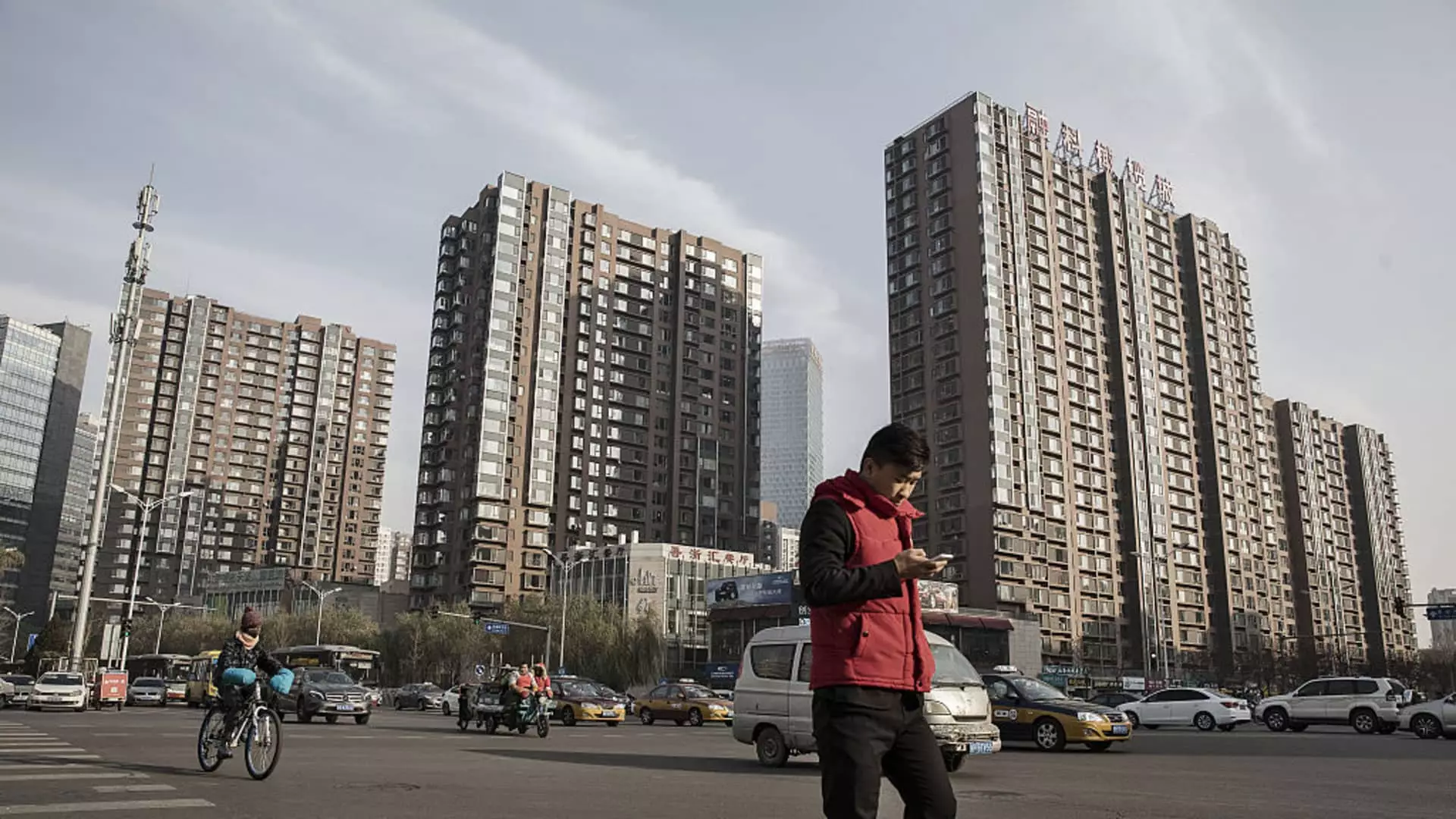As the world’s second-largest economy wrestles with stagnating growth and a struggling real estate sector, recent announcements from Chinese officials signal a renewed commitment to bolster the industry. These decisions come layered with complex implications for both macroeconomic stability and market confidence. This article aims to delve into the strategies proposed by China’s housing ministry and assess their potential efficacy in rejuvenating the beleaguered real estate market.
China’s housing ministry has revealed an ambitious plan to provide significant financial backing for real estate projects classified under its “whitelist.” The pledge includes accelerating the lending of approximately 4 trillion yuan (around $561.8 billion) specifically earmarked for these projects. In a recent press conference featuring key figures from the central bank and various financial ministries, Minister Ni Hong emphasized the urgency of the initiative, signaling that a total of 2.23 trillion yuan in loans had already been sanctioned to developers on the whitelist. By year’s end, this figure is projected to exceed the initial commitment, which poses an optimistic outlook for the sector.
This new strategy is a substantial pivot from previous government stances, particularly in relation to companies that operated beyond their financial limits. Back in May, Ni declared that certain developers “must go bankrupt or be restructured,” a sentiment that hinted at a stringent approach towards unsustainable financial practices. For investors, this dual message fosters a sense of cautious optimism: there is a clear intent to support viable projects while imposing necessitated accountability on the developers.
In light of this financial support, market reactions have been notably positive, highlighting the investors’ hopes for tangible reforms. Following announcements of increased financial intervention, shares of property companies surged, evidenced by substantial gains in indices such as the Hang Seng Mainland Properties Index and the CSI 300. Notably, real estate stocks have experienced more than 80% losses since their peaks in early 2020, exacerbated by the economic fallout from regulatory crackdowns. The recent uptick suggests investors are interpreting the government’s measures as a pivotal shift, moving toward revitalizing a market long considered a cornerstone of China’s economy.
Moreover, the People’s Bank of China, led by Governor Pan Gongsheng, has also played an integral role by reducing the reserve requirement ratio and lowering the minimum down payment for second-home loans. Such measures not only aim to increase liquidity but also encourage borrowers to engage more with the housing market, potentially triggering a ripple effect across related sectors of the economy.
In a strategic move to stimulate real estate activity, local governments are being empowered to issue special bonds for land purchases—an initiative that could invigorate local markets. Additionally, the provision of affordable housing subsidies applicable to existing properties, rather than solely to new constructions, further clarifies a shift in governmental policy intended to adapt to current market realities.
Notably, several major cities, including Guangzhou, Beijing, and Shanghai, have begun to ease home purchase restrictions. This loosening of policies could facilitate non-local buyers’ entry into the market, thus expanding the pool of potential homeowners and bolstering sales. The National Bureau of Statistics has indicated that despite the recent easing, new home prices slumped at the steepest rate in almost a decade, underscoring the urgent need for effective intervention strategies.
Despite these revitalization efforts, significant challenges linger within the real estate sector. The trajectory of property prices continues to reflect deep-seated issues stemming from the government’s past crackdown on leverage. This crackdown led to a wave of defaults among developers, resulting in stalled projects and a profound decline in homebuyers’ confidence. Furthermore, recent data shows that new homes sold declined by 23.6% through August 2023 compared to the previous year—a stark reminder of the turmoil still characterizing the sector.
As the Chinese government attempts to implement robust reforms, the efficacy of these measures will ultimately hinge on consistency and the ability to balance supporting viable businesses while also addressing unsustainable debt practices. Investors will be watching closely, as the right mix of policy and market behavior will dictate whether China’s approach can remodel a sector that once constituted over a quarter of its economy.
While the government’s renewed commitment to rejuvenating the real estate market offers a glimmer of hope, it must navigate a myriad of complexities inherent in restoring market confidence and sustaining economic growth. Only time will unveil the success of these strategies, but for now, the discourse surrounding them continues to resonate in financial circles and amongst prospective homeowners.

